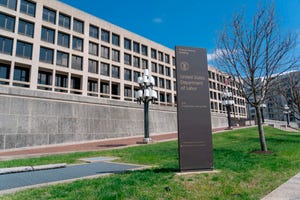USTR takes enforcement action against India, Turkey
Administration decision to terminate preferential trade status granted to India and Turkey welcomed by dairy industry.

At the direction of President Donald Trump, U.S. Trade Representative Robert Lighthizer announced that the U.S. intends to terminate India’s and Turkey’s designations as beneficiary developing countries under the Generalized System of Preferences (GSP) program because they no longer comply with the statutory eligibility criteria.
India’s termination from GSP follows its failure to provide the U.S. with assurances that it will provide equitable and reasonable access to its markets in numerous sectors. Turkey’s termination from GSP follows a finding that it is sufficiently economically developed and should no longer benefit from preferential access to the U.S. market.
By statute, these changes may not take effect until at least 60 days after the notifications to Congress and the governments of India and Turkey and will be enacted by a Presidential Proclamation.
Under the U.S. GSP program, certain products can enter the U.S. duty free if beneficiary developing countries meet the eligibility criteria established by Congress. GSP criteria include, among others, respecting arbitral awards in favor of U.S. citizens or corporations, combating child labor, respecting internationally recognized worker rights, providing adequate and effective intellectual property protection and providing the U.S. with equitable and reasonable market access. Countries can also be graduated from the GSP program depending on factors related to economic development.
The U.S. launched an eligibility review of India’s compliance with the GSP market access criterion in April 2018. India has implemented a wide array of trade barriers that create serious negative effects on U.S. commerce. Despite intensive engagement, India has failed to take the necessary steps to meet the GSP criteria, USTR said in a statement.
By holding India accountable for its unjustified trade barriers, the dairy industry said USTR is setting an important precedent on enforcement. A statement from the U.S. Dairy Export Council (USDEC) and National Milk Producers Federation (NMPF) indicated that India has denied market access to U.S. dairy products since 2003, despite receiving preferential access to the U.S. market under a special duty-free trade arrangement under the GSP. Over those years, India has cited a variety of shifting reasons as the basis for its illicit trade barriers, including unscientific restrictions on U.S. livestock feeding practices.
"For 16 years, India has enjoyed unilateral access to U.S. markets while flaunting their obligation to provide fair market access mandated under the GSP program and harming American dairy farmers in the process," NMPF president and chief executive officer Jim Mulhern said. "The Administration has sent a clear message: Abide by free and fair trade practices, or face the consequences."
The dairy groups explained that India has failed to engage in good-faith negotiations to restore market access for U.S. dairy exports. USDEC and NMPF submitted comments to USTR in September 2017 urging the agency to utilize congressionally mandated compliance requirements to modify India's GSP status.
"The U.S. dairy industry strongly welcomes this enforcement action by USTR and hopes that it sets the precedent that unfair trade practices will not be tolerated and compliance enforcement measures will be utilized when warranted," USDEC chairman and CEO Tom Vilsack said.
The U.S. designated Turkey as a GSP beneficiary developing country in 1975. An increase in gross national income per capita, declining poverty rates and export diversification, by trading partner and by sector, are evidence of Turkey’s higher level of economic development.
About the Author(s)
You May Also Like





